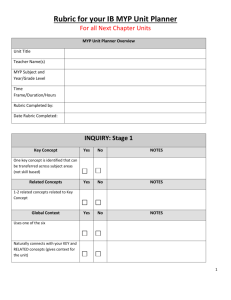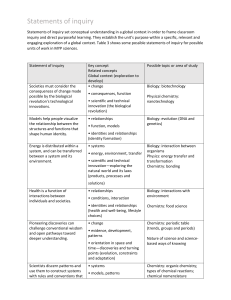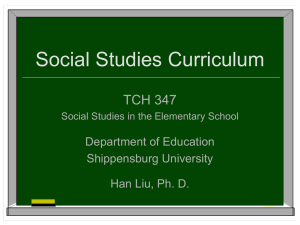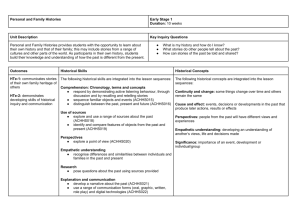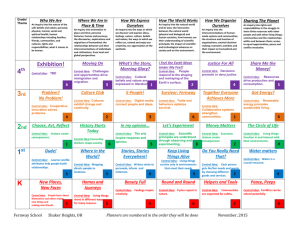inquiry questions - ccbmyp15-16
advertisement
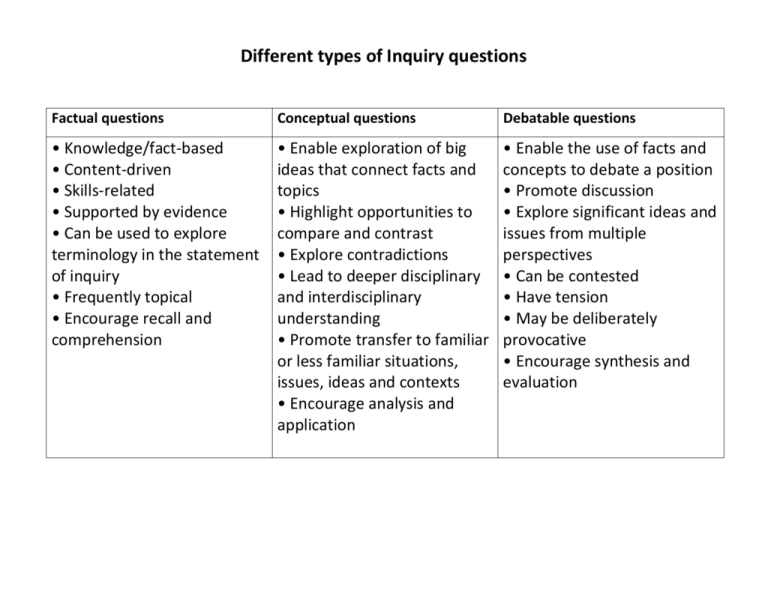
Different types of Inquiry questions Factual questions Conceptual questions Debatable questions • Knowledge/fact-based • Content-driven • Skills-related • Supported by evidence • Can be used to explore terminology in the statement of inquiry • Frequently topical • Encourage recall and comprehension • Enable exploration of big ideas that connect facts and topics • Highlight opportunities to compare and contrast • Explore contradictions • Lead to deeper disciplinary and interdisciplinary understanding • Promote transfer to familiar or less familiar situations, issues, ideas and contexts • Encourage analysis and application • Enable the use of facts and concepts to debate a position • Promote discussion • Explore significant ideas and issues from multiple perspectives • Can be contested • Have tension • May be deliberately provocative • Encourage synthesis and evaluation Example of factual, conceptual and debatable questions in a unit of inquiry KEY CONCEPTS: INTERACTION CHANGE STATEMENT OF INQUIRY: “Human/environmental interactions can become unbalanced, leading to changes with unintended consequences”. (Enduring understandings: To move students’ thinking beyond the local examples to the global perspective so that students can see the parallelism between local and global issues of concern. /For students to know which areas of the world have the greatest and least availability of natural resources / To understand that scarcity of natural resources can lead to conflict.) INQUIRY QUESTIONS: FACTUAL: Does our state (country, region) have areas of dense population? What issues in our region would suggest the danger of overpopulation? What areas of the world have very dense population centres? CONCEPTUAL: Why do nations develop concentrated “population centres”? What would indicate that a population centre is “overpopulated”? How do increasing human/environmental interactions change the environment? How might these interactions lead to scarce natural resources? How do communities with scarce natural resources meet their survival needs? How can scarce natural resources lead to conflict between groups of people or nations? PROVOCATIVE/DEBATABLE: • How can governments ensure that their citizens have the necessary natural resources for survival? • Should nations with plentiful natural resources be required to share with nations who have scarce natural resources? Be prepared to defend your position. JANUARY 2014- E.Cosh Adapted from Developing MYP units (excerpt from the forthcoming MYP: From principles into practice. For use from September 2014/January 2015) & IB position paper: Erickson, L. 2012 Concept-based teaching and learning

